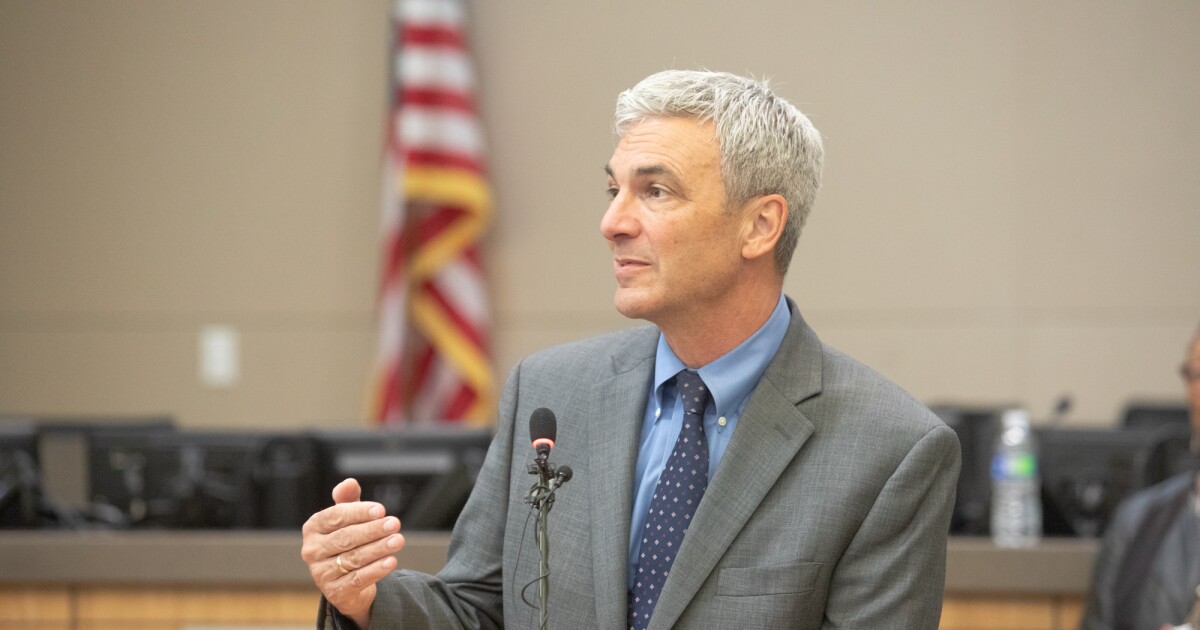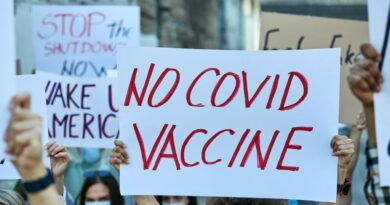Lessons learned from San Diego’s COVID misinformation panels

In July 2021, U.S. Surgeon General Vivek Murthy warned that misinformation — which he defined as “false, inaccurate, or misleading according to the best available evidence” — was an “urgent threat” to public health. Given misinformation’s effects on the nation’s ability to control the spread of COVID-19 he offered several strategies that individuals, medical professionals, the media, tech and, of course, governments could implement in order to combat it.
Then San Diego County followed Murthy’s lead. In August 2021, the Board of Supervisors voted 3-2 on a resolution declaring misinformation a public health issue, after many hours of testimony from citizens opposing the measure. San Diego was likely among the first counties in the nation to formally adopt the recommendations.
As part of the county’s efforts, Eric McDonald, chief medical officer of the San Diego County Health and Human Services Agency’s Medical Care Services department, led a series of online panels designed to address instances of misinformation that appeared in subsequent county meetings. The panels concluded in March, and inewsource spoke with McDonald about the effort.
This interview has been edited for length and clarity.
Can you explain the overall goal for these misinformation panels? What were they designed to do?
McDonald: We were directed by the Board of Supervisors to bring together our local experts here in San Diego to try to combat misinformation. We started this endeavor to catalog the national and local flows of misinformation, and tried to develop fact-based answers to specific questions that might be raised by misinformation.
We had six panels from October through March, and after the last one we were starting to have less and less material that we needed to go over. We kind of thought it had run its course, and that resource remains there.
We also set up a website and updated that on a frequent basis and tried to make it a real-time effort. We’re always cognizant that there may be something else that might come up, and we would address that on the website if we need to update it.
What was your strategy in these panels for trying to address misinformation around COVID without potentially reinforcing it at the same time?
McDonald: There have been studies on misinformation, and one of the things you don’t want to do is repeat the misinformation.
Sometimes you have to directly counter something if it’s particularly outrageous, or if it’s something that is difficult to explain. But generally, our approach was to say what works and emphasize that, rather than what doesn’t work or what’s not been shown to work at all. So if somebody raised a concern about whether masks are effective or not, we would present information about the effectiveness of masks.
In our first couple of panels, we knew what the big topics were because they had been repeatedly raised in previous board meetings and other venues. So we put together the first panel and covered a pretty wide range of topics.
After that, we were either talking about information that was new — when a new indication for a vaccine came out or a new therapy came out, we would talk about why that was important in preventing COVID-19 — or if there was a new question or concern that was brought up at a board meeting or in the news media, we would directly address that with the subsequent panel.
It’s understandable that people will seek medications that are easy to obtain and inexpensive, to try to see what might work. But most of those other therapies have not been born out. Time has shown that the things that do work are the antivirals that are FDA approved or monoclonal antibodies.
Is it disheartening to hear a lot of the same misinformation repeated over and over again in these meetings?
McDonald: It is disheartening. There’s misinformation in which you’re sort of unintentionally distributing incorrect data. And then there’s disinformation in which you’re knowingly developing and disseminating incorrect information to advance an agenda or frankly, to deceive people. I don’t try to impune motive to anybody who’s giving information in this public sphere, but there are times when something is repeated over and over again and it’s been effectively countered with the authoritative information. In that case, when the misinformation continues to be repeated, you really graduate from misinformation to disinformation.
And I do find that disheartening. But some people truly believe what they believe because of experience, or trauma even, that might be shaping their view. Some of them have very specific political agendas and others have philosophical agendas that they’re trying to promote.
I don’t think that it’s inappropriate to listen to all voices, even if they are repetitive, even if sometimes I don’t think that they’ve engaged in a sincere dialogue. I just try to understand what the motivation is and if it’s something that I can find common ground with, then I will try to work on that because that’s really what it’s all about in the public sphere to have collective action.
Do you think you brought anyone around with these panels from a view that was based in misinformation?
McDonald: The absolute number of citizens in the County of San Diego watching those is probably pretty low, but I do know that there were many instances in which we had a presentation that directly influenced reporting in the next 24, 48 or 72 hours, with clips from our panel being shown on TV or published in the paper. Just interacting with my neighbors and the community, many people thanked me for having the panels and had good things to say.
I do think that having our accurate information out there so that the public can weigh that along with the other things that they’re considering was valuable. It was a good counterbalance to some of the other louder voices in the community.
Should the Surgeon General’s declaration that misinformation is a public health issue have come sooner?
McDonald: I don’t know. Early in the pandemic, we were trying to do the best that we could to give the most up-to-date information as it was developing, and we were always changing the message and altering it, based on new information and the reaction to that information.
We did the best that we could for a new virus. But there’s always going to be a gap, and people will fill that space with all kinds of stuff. Recognizing misinformation as a separate dynamic that needed to be dealt with could have been done earlier in the pandemic, but it was a national issue.
At the Board of Supervisors meetings, some people said vaccines contain HIV or microchips. Do you think trying to convince people otherwise can work, given that there’s no evidence for these conspiracies in the first place?
McDonald: There’s a group that you’re just not going to move. If somebody thinks that there’s something nefarious in a vaccine, they’re going to believe that no matter how hard you try. That’s not the group that we’re trying to influence. Our efforts are really for the people who have not made up their mind or just don’t don’t spend much time thinking about it. They need a quick resource to go to, and then they can just move on to the next thing.
I was in the Navy for 24 years and did vaccine programs for the Navy. We often had a lot of our service members who sometimes didn’t like getting shots, and there were conspiracy theories that were going around about routine vaccinations back then. Conspiracy theories are always going to be there, but the great majority of folks are trying to just take information for what it is and make good decisions.
What did you learn from these panels?
McDonald: What I learned was that we’re just blessed in San Diego with international experts in the various areas of concern. I was just so surprised how many people were going, “Oh yeah, I’ll help with that. Let me be part of that endeavor.” People just come together to solve problems.
-
September 15 marks International Day of Democracy as designated by the United Nations. It comes at a time when democratic institutions are under threat worldwide, and with a growing sentiment that democracy is in danger.


